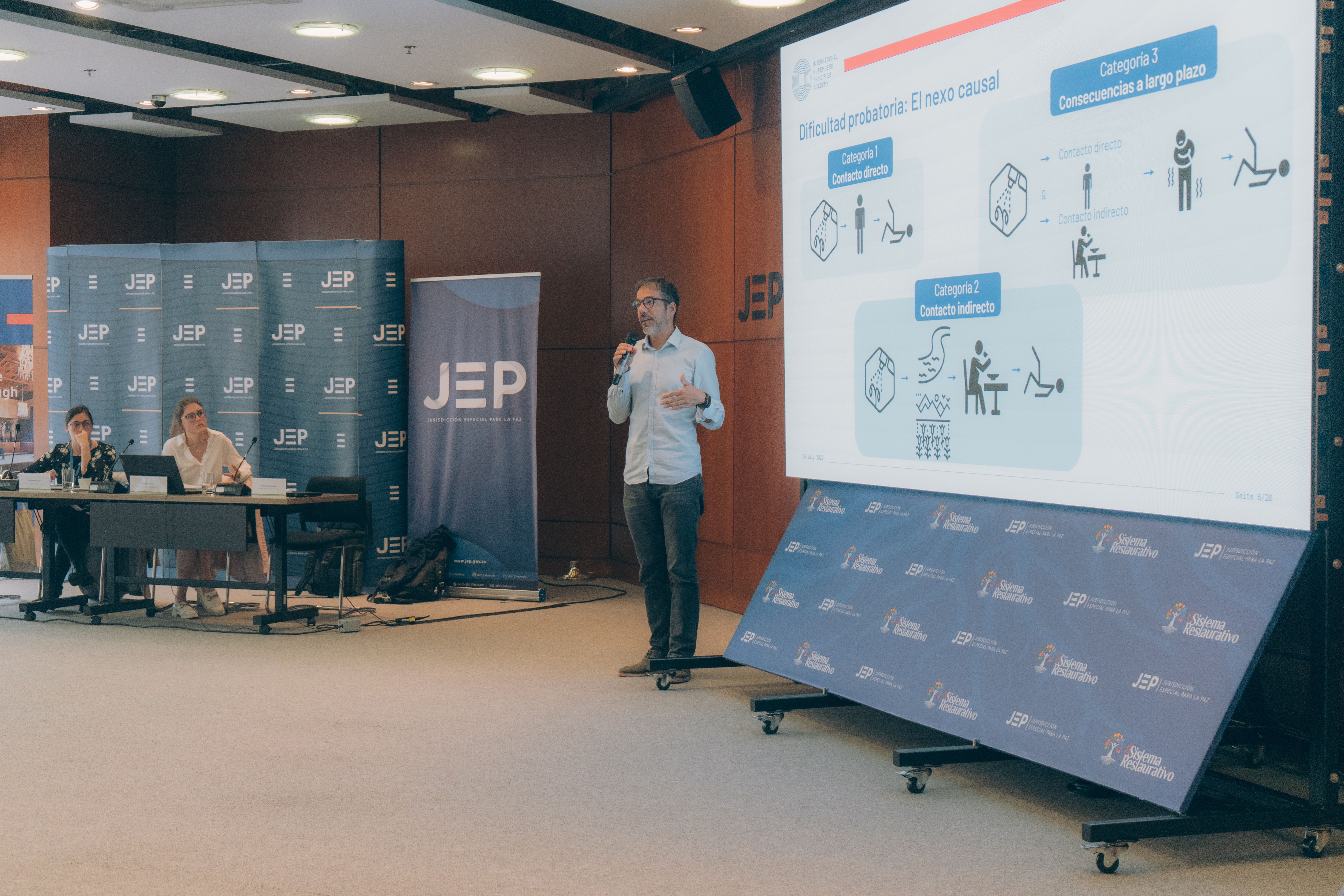A project that trains Colombia's prosecutors and judges to investigate environmental crimes
In 2025, Source International partnered with the Nuremberg Academy to build capacity within Colombia’s Special Jurisdiction for Peace (Juzgado Especial por la Paz - JEP). This project aims at training prosecutors and judges to investigate environmental crimes – from illegal deforestation to illicit mining – committed during the 50-year armed conflict, thereby supporting Colombia’s transitional justice system in integrating environmental justice.
The Colombian peace process recognizes environmental harm as integral to conflict-related injustice. Colombia is experiencing rapidly increasing deforestation – up to 3,000 km² annually – driven by illegal mining, logging, cattle ranching, and coca cultivation, all intertwined with armed groups and criminal networks. In regions like Chocó and the Amazon, environmental exploitation fuels violence and undermines human rights.
The JEP, established under the 2016 peace accords, includes a dedicated Territorial and Environmental Commission to address such crimes, yet many legal professionals lack experience in investigating environmental violations under International Humanitarian Law. Empowering the court with the skills to identify, document and prosecute these crimes is therefore pivotal to ensure justice, support ecological recovery, and reinforce peace.
In collaboration with the Nuremberg Academy, Source International is delivering a specialized training programme for judges and prosecutors of the JEP. The training will build legal and technical knowledge, enabling legal professionals to pursue robust investigations into conflict-related environmental crimes.
In particular, the project will involve:
• the description of investigative frameworks, case law, and international standards for environmental war crimes;
• the creation of hands-on tools & methodologies, including forensic techniques, evidence collection protocols, and analysis relevant to deforestation, mining, wildlife trafficking, and pollution;
• strengthening of institutional networks to better connect the JEP with experts, NGOs, and practitioners experienced in environmental and international justice.
Between July 7 and 11, 2025m, we were in Bogotà to take part in a key international exchange aimed at strengthening capacity to address environmental crimes linked to Colombia’s armed conflict.
Our founder and director, Flaviano Bianchini, joined a program of training and knowledge-sharing with Colombian judges, prosecutors, and technical experts. The focus of the program was developing tools and methodologies to investigate crimes such as illegal deforestation, illicit mining, wildlife trafficking, and pollution – environmental violations deeply connected to the country’s 50 years long conflict.
The event was designed as a model for integrating environmental justice into transitional tribunals, ensuring that crimes against nature do not go unpunished and that peacebuilding includes ecological restoration.
“The JEP is already a landmark in history" – commented Flaviano Bianchini. "It is the first tribunal to investigate and judge all crimes committed during an armed conflict, regardless of who committed them. Now, it is taking another significant step forward by investigating environmental crimes as well. It is a true honour to be part of this historic process”.

During Colombia’s armed conflict, a staggering number of environmental crimes were committed: “Paramilitary and guerrilla groups financed their operations through illegal mining, logging, and coca cultivation; entire communities were forcibly displaced to make way for coal and gold mining projects. Meanwhile, the Colombian government, with support from the United States, conducted widespread glyphosate spraying to eradicate coca crops, causing severe harm to both the environment and local farming communities”.
“Now, for the first time in history, these environmental crimes are being formally investigated by the Special Jurisdiction for Peace and this marks a groundbreaking step in transitional justice", concludes Flaviano. "We have worked to train local prosecutors, magistrates, and judges in how to integrate scientific evidence into these investigations, ensuring that justice is not only served, but done so with rigor, fairness, and scientific integrity”.
• Field-to-court curricula to support regional JEP magistrates in applying environmental crime frameworks.
• Expansion of peer-learning with regional counterparts and legal coaches to support ongoing institutional change.